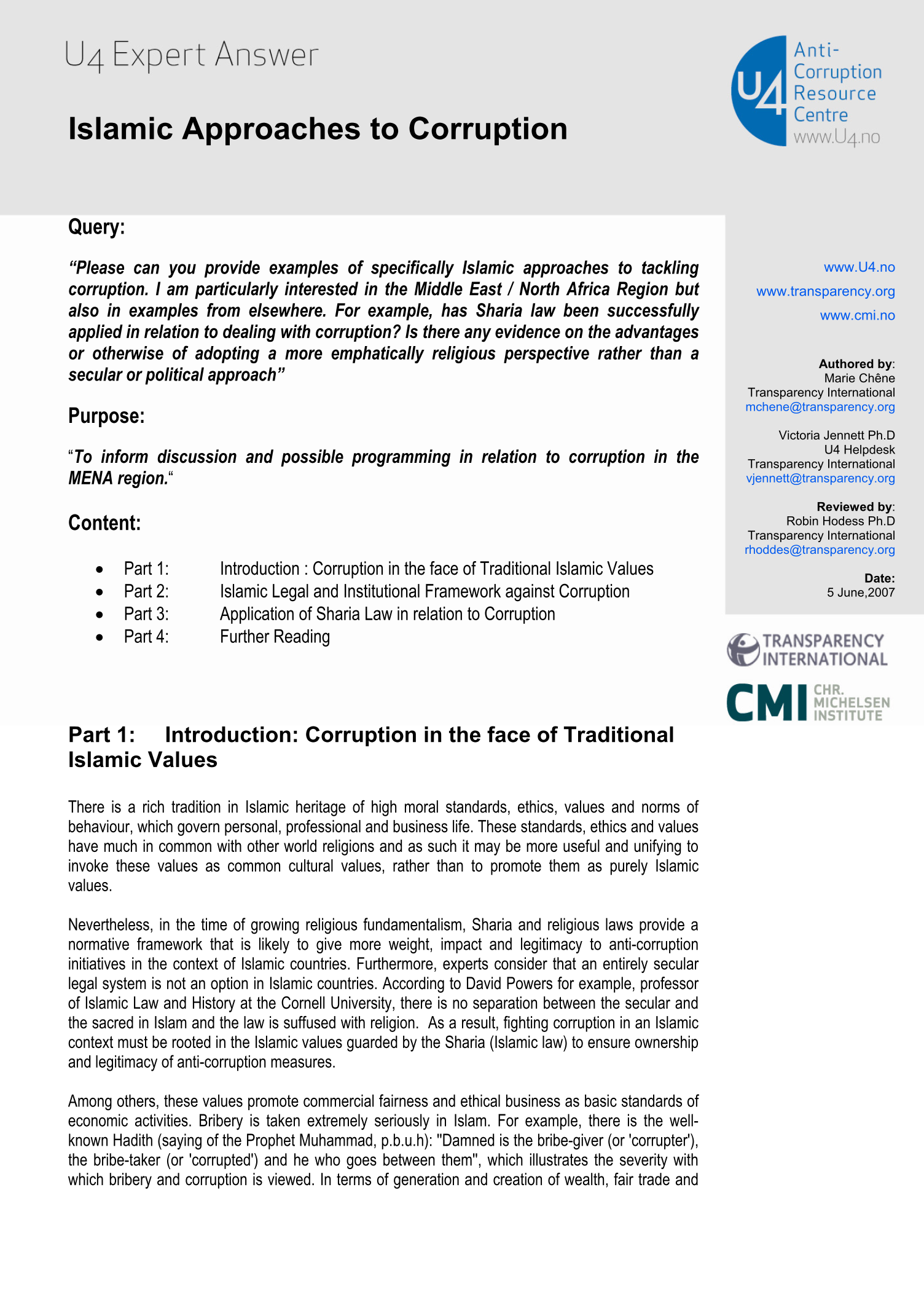U4 Helpdesk Answer
Islamic approaches to corruption
Fighting corruption in an Islamic context must be rooted in the Islamic values guarded by the Sharia to ensure ownership, impact and legitimacy of measures. However, although Islamic law is implemented to some degree in most Middle East countries and strongly influences their legal codes, there is little evidence available of how Sharia law and courts specifically deal with corruption. Traditional Sharia Courts, complaint mechanisms or other Islamic institutions could potentially provide entry points for anti-corruption initiatives, provided they meet basic human rights and international legal standards. Concerns have been raised regarding the ability of Sharia courts and penal codes to meet these conditions.

Cite this publication
Chêne, M.; Jennett, V. (2007) Islamic approaches to corruption. Bergen: U4 Anti-Corruption Resource Centre, Chr. Michelsen Institute (U4 Helpdesk Answer Helpdesk 2007)
Disclaimer
All views in this text are the author(s)’, and may differ from the U4 partner agencies’ policies.
This work is licenced under a Creative Commons Attribution-NonCommercial-NoDerivatives 4.0 International licence (CC BY-NC-ND 4.0)

